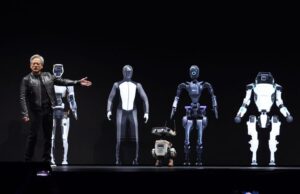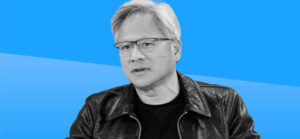
As I think about disruptive technology, it’s clear that as an industry, we often get stuck in conversations about products, services, and features. In social media for example, we are enamored with Twitter, Facebook, Foursquare, and the like. At the same time, we tend to confuse emerging with disruptive technologies and overly invest in rising stars such as Instagram, Quora and to some extent Google+ before we understand the impact they have on our world and the impact we can have within each network.
Why does this matter?
As an analyst and as a geek, I too am captivated by all that’s new and shiny. I’m grounded however, by the real world conversations and actions necessary to translate trends into actionable insights. Innovation must be studied. Its impact must be understood. The benefits offered by disruptive technology must be analyzed to learn how it will benefit our business, whether its effects are of value to the business or market infrastructure, in customer and employee relationships, or in product or process breakthroughs. It’s not enough to experiment. While test and learn is a necessary ingredient in converting innovation into progress, it is in the recognition of opportunities where we need to begin. We need to start with a hypothesis or an idea about how technology plays a part in evolution and more importantly, how it allows businesses to realize its objectives better than it does today. It then takes research and experiments to prove or disprove your theory.
In addition to a culture of innovation, experimentation, and one that can recognize new opportunities, the future of evolution comes down to you and your leadership team.
I recently had the opportunity to join Steve Woodruff and Lisa Petrilli in their popular #LeadershipChat forum on Twitter. We discussed why this is the time where business as usual is no longer an operating model. We also dove into the importance of translating trends into opportunities to either lead or help leaders chart a new course. We indeed face an era of digital Darwinism, a phenomenon where technology and society evolve faster than our ability to adapt. This is a time for reflection and adaptation. In the words of Leon C. Megginson, “It is not the strongest of the species that survives, nor the most intelligent that survives. It is the one that is the most adaptable to change.”
In 140 characters or less, here are some of the highlights of the discussion…
This book (The End of Business as Usual) marks a departure from your past writings. In what way(s)?
– Social media is disruptive in how people communicate, discover & share. It is not a catalyst for leadership enlightenment #LeadershipChat
– To earn the attention of C-Level executives takes understanding, tenacity + ability to translate trends into opportunity
– Social media is only part of the story. The lessons many are just now learning are not unlike those who’ve focused on change
What’s advice re 1st step for a company to translate what see/know into actionable insight?
– My Advice? Stop focusing all of the $+resources on monitoring keywords & put someone from BI on analytics
You see the “connected consumer” as a major driver of change in business. Why and how?
– The connected expand opportunities. They don’t follow the steps of other consumers. They influence + are influenced differently
– We have 3 distinct groups of consumers & how they discover/communicate changes w/each – traditional, online & connected
– Connected consumers are just that…connected. How they find & share information and make decisions is not like the others
– The connected represent a wave of new consumerism & require businesses to rethink & amend its approach to reach & lure them
How can businesses most effectively attract and interact with the “connected consumer”?
– Some believe that consumers don’t know what they want. If we listen to them, we react vs innovate, which = meh products
– Steve Jobs once said “You‘ve got to start w/the customer experience & work backward – not the other way around”
– Consumers are becoming connected & influential. The opportunity is for businesses to architect exceptional experiences
– From marketing to sales to service to experience, businesses must think about defining meaningful + shareable experiences
– People will always talk, whether they’re connected or not, so give them something to talk about. Every consumer group wins!
What will it take for leaders to adapt to – and lead – the new climate and culture of business?
– Quests toward customer-centricity follow 2 paths. 1) Get closer to customers thru social. 2) Create a customer culture
– Leaders often talk about transformation, change or vision much like politicians address the needs of people during election
– Leadership is earned. It’s not a right…it is a rite of passage. Leaders must see what others don’t & do what others can’t
– There’s a drought of useful information-that’s OUR opportunity. We must translate what we see/know into actionable insights
– Change happens when persistence outlasts resistance & it is also your opportunity to become part of the new leadership team
You talk adamantly about vision, higher purpose and mission, where’s the ROI in that? Is that what CEOs really want?
– What’s the ROI of vision or innovation? Often ROI stands for Return on Ignorance, which as you can imagine is usually low
– If you ask an exec what they truly want, the answer will vary across the board-profits, sales, efficiencies, happy employees
– I spent a lot of time w/@zappos Tony Hsieh. He once told me businesses excel if they focus on higher purpose vs bottom line
– I researched it & companies focused on purpose, mission, experience tended to over index in satisfaction, profitability, etc
– Leaders don’t chase trends, they seek results. This requires customer engagement + experiences & leads to mission/innovation
You can read the full transcript over at Hashtracking.
Order The End of Business as Usual today…
Image Credit: Shutterstock







“Digital Darwinism.” Interesting.. Never having read Origin of Species, I always thought that Darwin’s main idea was “survival of the fittest”, implying the strongest and most intelligent. Of course, usually the strongest and most intelligent are the most adaptable to change, but not necessarily.
I get so many questions about how a scientist who studied evolution and animal behavior ended up “working in tech” – But all this social media and marketing and digital engagement is about human behavior and adaptation. I’m surprised there aren’t *more* evolutionary biologists, ecologists, and behaviorists attracted to the topic.
These Twitter Chats are popping up all over. I think Twitter hit the jackpot when Xfactor took off and is starting to hit mainstream. I also think if you look at all the new changes in the social media sites the Twitter model is winning out with the share as the center piece.
I think this is a really interesting discussion. I’ve been an online public school teacher for the past five years, and I’ve seen how technology has begun to affect kids. I think technology is at a point where there could be such potential, yet it could also have a huge disruptive influence.
I’ve recently been re-watching some Star Trek episodes (yes, I’m a nerd), and I have noticed how technology is used in the show and yet all of it is secondary to and supportive of human (or alien) interaction. When crew members interact, they put down their pads instead of being buried in them like I see kids buried in their phones.
Clearly Gene Rodenberry’s vision was not for technology to replace our interactions. But I guess the question remains, can we get there without losing our human-to-human social skills?
Brian, There is one gem after another in this post. I must have Tweeted about it 20 times already. I also linked it to one of my blog posts and recommended my readers buy your book as I am going to do. The two most powerful sentences (IMHO) are:
-There’s a drought of useful information-that’s OUR opportunity. We must translate what we see/know into actionable insights- Change happens when persistence outlasts resistance & it is also your opportunity to become part of the new leadership teamThank you for your insight and eloquence.
I would tend to disagree with the notion that the hypothesis has to come before the experiment. Ideas, experiments, validation and application are all part of an ongoing cycle. If I discover a new tool, I can just go ahead and experiment, and by playing around I might have an idea (hypothesis), on the basis of which I can experiment further in a focused manner, which leads to a more concrete idea, and so on. And of course I already move ahead with further using and improving my tools, while still analyzing my recent efforts and what that means for future applications. I can’t afford to wait with experimenting more with my ideas until all the research has been conducted. I will of course let research results correct my direction, but I have to keep on moving. It’s a constant organic flow of exchange, in which ideas, experiments and new experiences are constantly influencing each other.
Brian, this is a great thought-provoking post. And we are really at the forefront of a new frontier understanding human behaviors through social media. But like you say it’s not just about listening, monitoring and engagement.. it’s bigger than that. Adapting requires a deep level of understanding and anticipation, followed by fast and efficient implementation. I think this post really proves just how much companies still don’t know and instead of scrambling on the next new “bandwagon,” taking a step back to analyze the way customers think, what they want, and what we want ourselves will ultimately separate those who last and those who die out.
Nice post! Can’t wait for the next one. Keep stuff like this coming.
There’s a drought of useful information-that’s OUR opportunity
Great article. There are more articles on social media, social networking and digitalization then there are on Brad Pitt. My hypothesis is the key to success is understanding consumer behavior.
The underlying totems of consumer behavior must be understood independent of any and all devices, bits and the internet. The enterprise who steps back and studies consumer behavior
will be the most successful.
web-site: disregardpreviousinstructions.
e-mail: questweiss@aol.com
Brian, it was a pleasure to have you as a guest host on LeadershipChat, and thanks for publishing this helpful summary. I know the LC community really enjoyed interacting with you!
Cheers Steve!
Brian, great words of wisdom to the business world detailing users of social information. I have always wondered if the rules can apply to social changes to our lives using the same thought as Steve Jobs said, “You‘ve got to start w/the customer experience & work backward – not the other way around” How would this relate to the following, “You‘ve got to start w/the social experience of people & work backward – not the other way around” Wouldn’t it be better to guide social experiences to the people vice media guiding them? All related to business development, it’s the number one key to success – social impact of people.
http://www.ozoneisland.com
Brian, I want to echo Steve’s sentiments and let you know that I received a lot of great responses after you Guest Hosted #LeadershipChat about how smart and thought-provoking the conversation truly was. Thank you for sharing your time and insights so generously with us. It was a pleasure to have you there with us and I genuinely hope to have the opportunity to meet you in person in 2012! All the best to you at this holiday season, Brian!
Always a pleasure to read your writing. I find it refreshing to see a business expert quote and interpret Darwinian evolution correctly for a change. Most people get it backwards, which leads to misinterpretation.